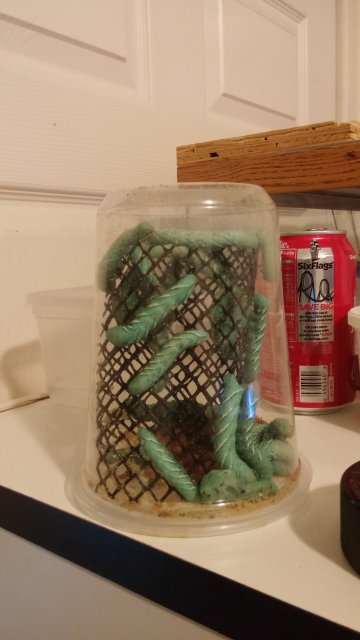Went to my local reptile store, and picked up a Giant container of hornworms. They are commonly used in the reptile hobby to beef up reptiles for breeding etc. I was wondering if these were also safe to feed to my fish? I have large arowana and a dovii who I would feed it too. I just want to make sure before I do. 



